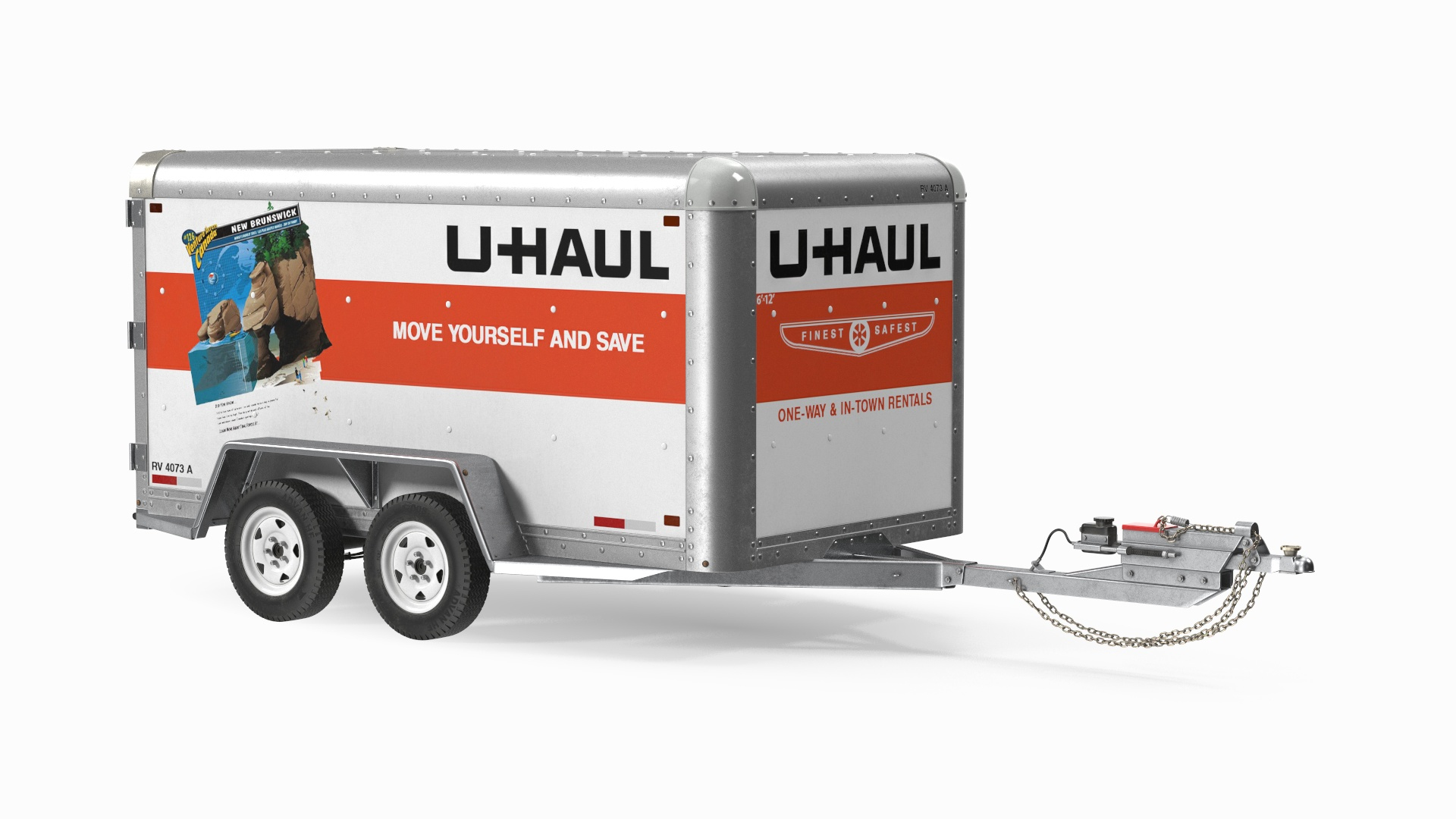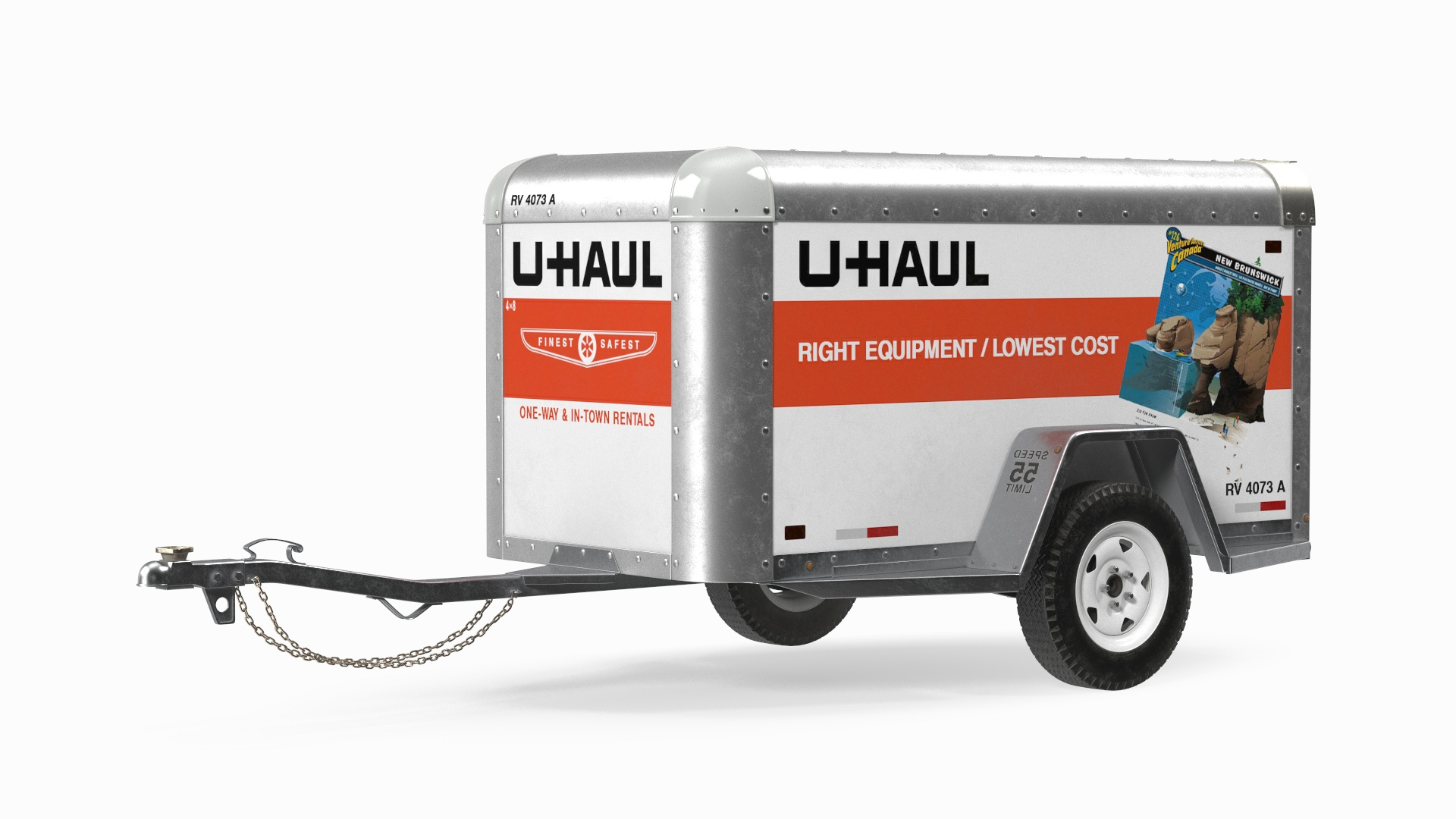Small U-Haul Trailer: Your Compact Solution for Big Moves cars.truckstrend.com
Moving, decluttering, or tackling a DIY project often involves transporting items that are just too large for your car’s trunk but don’t warrant a full-sized moving truck. This is where the small U-Haul trailer steps in as an incredibly versatile, cost-effective, and surprisingly capable solution. Often referring to U-Haul’s compact enclosed cargo trailers, such as the 4×8 and 5×8 models, these nimble giants are designed for ease of use, making them a popular choice for everything from college dorm relocations to hauling renovation supplies. This comprehensive guide will delve into the world of small U-Haul trailers, exploring their benefits, how to rent one, essential safety tips, and more, empowering you to make your next small haul a breeze.
Understanding the Small U-Haul Trailer Landscape
Small U-Haul Trailer: Your Compact Solution for Big Moves
U-Haul offers a variety of trailers, but when we talk about "small" options, we’re primarily focusing on their enclosed cargo trailers, which provide protection from the elements and added security for your belongings.
- The 4×8 Cargo Trailer: This is U-Haul’s most compact enclosed option. Measuring approximately 4 feet wide by 8 feet long (inside dimensions), it offers about 200 cubic feet of loading space. It’s ideal for small apartment moves, dorm room essentials, boxes, or a few pieces of furniture. Its light weight makes it manageable for a wide range of towing vehicles.
- The 5×8 Cargo Trailer: A step up in size, the 5×8 provides around 256 cubic feet of space. Its slightly larger footprint accommodates more boxes, larger furniture items like sofas or mattresses, and is a popular choice for one-bedroom apartment moves or significant decluttering projects.
- Other Small Options (Utility Trailers): While less common for general moving, U-Haul also offers small open utility trailers (like the 5×9 with a ramp) that can be considered "small." These are excellent for hauling landscaping materials, ATVs, or items that are oddly shaped and don’t require protection from weather. For the purpose of this article, we’ll primarily focus on the enclosed cargo trailers due to their popularity for household moves.
Why Opt for a Small U-Haul Trailer?
Choosing a small U-Haul trailer over a larger truck or even multiple car trips comes with a host of advantages:

- Cost-Effectiveness: Small trailers are significantly cheaper to rent than moving trucks, both for in-town and one-way rentals. They also save on fuel costs compared to larger, heavier vehicles.
- Ease of Towing: Their compact size and lighter weight make them much easier to maneuver, park, and tow, even for drivers new to trailering. They put less strain on your towing vehicle.
- Versatility: From moving a child to college, clearing out a storage unit, transporting DIY project materials, or helping a friend move, the applications are endless.
- Security and Protection: Enclosed trailers keep your belongings safe from theft and protected from adverse weather conditions like rain, wind, or dust.
- Accessibility: Their smaller footprint allows them to navigate tighter streets, driveways, and parking lots that might be challenging for a large moving truck.

How to Rent a Small U-Haul Trailer
Renting a small U-Haul trailer is a straightforward process, whether you do it online or in person:
- Online Reservation: The easiest way to start is on the U-Haul website. Enter your pickup location, desired drop-off location (for one-way), dates, and select the "Trailers" option. You’ll be able to see available sizes and estimated pricing.
- Vehicle Compatibility: U-Haul will prompt you to enter your towing vehicle’s make, model, and year. Their system will check if your vehicle is rated to safely tow the chosen trailer and if it has the necessary hitch equipment (receiver, hitch ball, wiring harness for lights).
- Required Equipment: Ensure your vehicle has a hitch receiver, a compatible hitch ball (U-Haul typically uses 1-7/8" or 2" balls for small trailers, which they can provide or install), and a working lighting connection (usually a 4-flat connector). If you don’t have these, U-Haul can often install them for a fee.
- Pickup Day:
- Bring your valid driver’s license and a major credit card.
- U-Haul personnel will help you hook up the trailer, ensuring the hitch connection is secure, the safety chains are crossed, and the lights are functioning.
- They will also review the rental agreement, including insurance options and return procedures.
- Inspect the trailer for any existing damage before you leave and ensure it’s noted on your contract.

Loading and Towing Your Small U-Haul Trailer
Proper loading and safe towing are crucial for a smooth experience.
- Weight Distribution is Key: Load heavier items first, placing them over or slightly forward of the trailer’s axle. This ensures proper tongue weight (the downward force on your hitch), which should be 10-15% of the total loaded trailer weight. Too much weight at the back can cause dangerous swaying.
- Secure Everything: Use moving blankets to protect furniture and boxes. Secure all items with tie-down straps to prevent shifting during transit. Shifting cargo can destabilize the trailer and damage your belongings.
- Pre-Trip Inspection: Before every drive, double-check:
- Hitch connection and safety chains.
- Trailer lights (running lights, brake lights, turn signals).
- Tire pressure on both the trailer and your towing vehicle.
- Load security inside the trailer.
- Driving Considerations:
- Reduce Speed: Always drive slower than you normally would. Trailer sway can become much more pronounced at higher speeds.
- Increase Following Distance: Your braking distance will be significantly longer with a trailer attached.
- Wider Turns: Account for the trailer’s length and width by making wider turns to avoid hitting curbs or other obstacles.
- Lane Changes: Be mindful of the extra length when changing lanes.
- Hills: Your vehicle will work harder on inclines. Downshift to maintain power and use engine braking on descents.
- Wind: Crosswinds can cause trailer sway. Reduce speed and maintain a firm grip on the steering wheel.
- Backing Up: This is often the trickiest part. Turn your steering wheel in the opposite direction you want the trailer to go. Small adjustments are key. If possible, have a spotter.
Important Considerations and Safety
- Vehicle Towing Capacity: Never exceed your vehicle’s stated towing capacity. This information is usually in your owner’s manual. Overloading can damage your vehicle, void warranties, and create dangerous driving conditions.
- Hitch and Wiring: Ensure your hitch is rated for the trailer’s weight and that your vehicle’s wiring harness for the trailer lights is functioning correctly.
- Insurance: Your personal auto insurance may or may not cover damage to a rented trailer or liability while towing. U-Haul offers Safemove® or Safemove Plus® protection plans that cover damage to the trailer, your belongings, and offer roadside assistance. It’s highly recommended to consider these.
- Weather: Avoid towing in severe weather conditions like heavy rain, snow, ice, or high winds. If unavoidable, reduce speed drastically and increase caution.
- Tire Pressure: Always check the tire pressure on the trailer before starting your journey, and periodically on long trips. Correct tire pressure is vital for stability and safety.
Potential Challenges and Solutions
- Underestimating Size: It’s common to rent a trailer that’s too small. Solution: Create a detailed inventory of what you need to move and check the interior dimensions of the trailer against your largest items. When in doubt, go one size up if your vehicle can handle it.
- Improper Loading: Leads to sway and instability. Solution: Adhere strictly to the "heavier items first, over the axle" rule. Use plenty of tie-downs and fill empty spaces to prevent items from shifting.
- Towing Anxiety: New tower drivers can feel overwhelmed. Solution: Practice in an empty parking lot before your trip. Take it slow, make wide turns, and focus on smooth inputs. Watch online tutorials.
- Breakdowns: While rare, they can happen. Solution: U-Haul offers 24/7 roadside assistance. Ensure you have the contact number readily available. Consider their protection plans that include this service.
Small U-Haul Trailer Estimated Pricing Table
Please note: U-Haul rental prices are highly variable based on location, availability, time of year, rental duration (daily vs. multi-day), and whether it’s an in-town or one-way rental. The prices below are estimates and should only be used as a general guide. Always get a direct quote from U-Haul for accurate pricing.
| Trailer Type | Internal Dimensions (L x W x H) | Approx. Capacity (Cubic Feet) | Max Load Weight (Approx.) | Typical Daily Rental (In-Town Est.) | Typical One-Way Rental (Est.) |
|---|---|---|---|---|---|
| 4×8 Cargo | 8′ x 4′ x 4′ | 200 cu. ft. | 1,600 lbs | $14.95 – $19.95 | $70 – $150+ |
| 5×8 Cargo | 8′ x 5′ x 4.5′ | 256 cu. ft. | 1,800 lbs | $19.95 – $24.95 | $90 – $200+ |
| 5×9 Utility | 9′ x 5′ (open) | N/A | 1,600 lbs | $14.95 – $19.95 | Varies, less common for one-way |
Prices do not include taxes, environmental fees, or optional insurance/protection plans.
Frequently Asked Questions (FAQ)
Q1: What’s the smallest enclosed trailer U-Haul offers?
A1: The 4×8 cargo trailer is U-Haul’s smallest enclosed option.
Q2: Do I need a special license to tow a small U-Haul trailer?
A2: In most U.S. states and Canadian provinces, you only need a standard driver’s license to tow a small U-Haul trailer, as long as your vehicle’s Gross Combined Weight Rating (GCWR) is not exceeded.
Q3: What kind of hitch do I need for a small U-Haul trailer?
A3: Most small U-Haul cargo trailers require a 1-7/8" or 2" hitch ball and a compatible hitch receiver on your vehicle. You’ll also need a working 4-flat wiring connector for the trailer lights. U-Haul can assist with installation if needed.
Q4: Can I tow a small U-Haul trailer with a sedan or small SUV?
A4: Many sedans and small SUVs are capable of towing the 4×8 cargo trailer, and some larger SUVs can handle the 5×8. However, it’s crucial to check your specific vehicle’s owner’s manual for its exact towing capacity before renting.
Q5: What if I break down while towing the trailer?
A5: U-Haul offers 24/7 roadside assistance. If you purchased their Safemove® or Safemove Plus® protection, these services are included. Otherwise, you may incur charges.
Q6: Do I need to clean the trailer before returning it?
A6: Yes, it’s expected that you return the trailer in a clean condition, similar to how you received it. Failure to do so may result in cleaning fees.
Q7: Is insurance included with the rental?
A7: No, basic insurance is not typically included. U-Haul offers optional protection plans like Safemove® and Safemove Plus® that cover damage to the trailer, your belongings, and offer roadside assistance. It’s highly recommended to consider purchasing one.
Q8: Can I rent a small trailer for one-way trips?
A8: Yes, both the 4×8 and 5×8 cargo trailers are available for one-way rentals, allowing you to pick up in one location and drop off in another.
Conclusion
The small U-Haul trailer, particularly the 4×8 and 5×8 cargo models, stands out as an unsung hero in the world of personal transportation and moving. Offering a perfect blend of affordability, ease of use, and practical capacity, it empowers individuals to tackle a wide range of hauling needs without the commitment or cost of a larger vehicle. By understanding the types available, preparing your towing vehicle, practicing safe loading and driving techniques, and being aware of key considerations, you can leverage these compact powerhouses to make your next small move or project surprisingly simple and stress-free. So, the next time you have a load that’s just a bit too big, remember the mighty small U-Haul trailer – your compact solution for big peace of mind.




